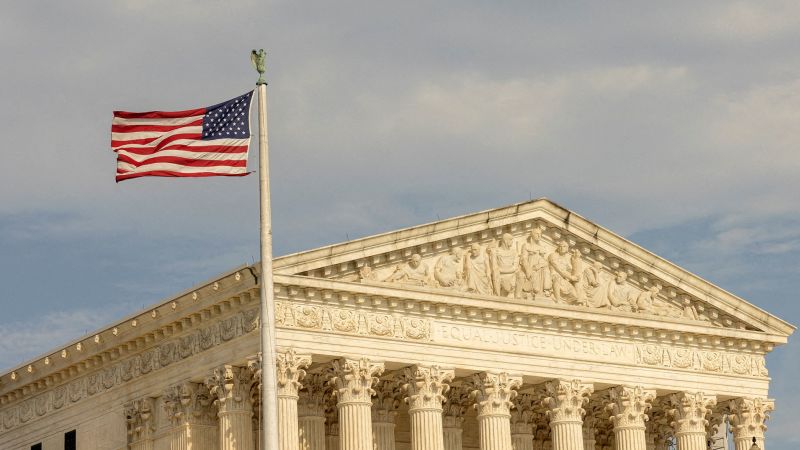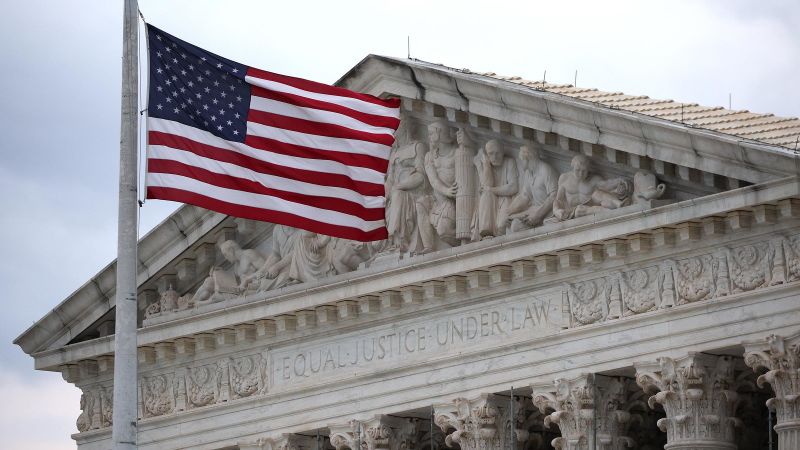US Supreme Court Deliberates Over Trump's Bid to Limit Birthright Citizenship
The US Supreme Court has deliberated over former President Donald Trump’s attempt to enforce an executive order limiting birthright citizenship.
If upheld, the move could impact thousands of babies born annually as Trump seeks to redefine a long-standing interpretation of the US Constitution.
The justices are examining an emergency request from the administration to reduce the scope of injunctions issued by federal judges in Maryland, Washington, and Massachusetts.
These injunctions currently block Trump’s order nationwide, with the judges ruling that the directive likely violates the citizenship clause of the 14th Amendment.
During the hearing, US Solicitor General D. John Sauer argued that Trump’s order was aimed at “protecting the meaning and value of American citizenship.”
He also contended that federal judges lack the authority to issue nationwide injunctions, calling their increased use a “pathology.”
Trump signed the order on 20 January, his first day back in office, directing federal agencies to deny citizenship to US-born children without at least one American citizen or lawful permanent resident parent.
The plaintiffs, however, argue that the order contravenes the 14th Amendment, which has traditionally conferred citizenship to almost anyone born on US soil.
The amendment, ratified in 1868, was designed to overturn the 1857 Dred Scott v. Sandford ruling that denied citizenship to Black people.
Sauer claimed that the amendment’s original intent was to grant citizenship to the children of former slaves, not to “illegal aliens or temporary visitors.”
The court, holding a 6-3 conservative majority, raised various legal questions, including the validity of universal injunctions and the legality of Trump’s order.
Liberal Justice Sonia Sotomayor expressed concern that the order could leave thousands of children stateless and without access to government services, stating that it contradicts established Supreme Court precedents on citizenship.
Plaintiffs estimate that more than 150,000 newborns could be denied citizenship annually if the order takes effect. Democratic attorneys general from 22 states, along with immigrant rights advocates, have challenged the directive.
The administration argues that the citizenship clause does not cover those in the country illegally or individuals with temporary legal status, such as students or workers on visas.
Justice Elena Kagan questioned the practical implications of not having a nationwide injunction, suggesting it could take years for the legality of the directive to be resolved. Conservative Justice Amy Coney Barrett echoed concerns about the potential delay in reaching a final decision.
Sauer noted that since Trump’s return to the presidency, federal judges have issued 40 universal injunctions against his policies.
Conservative Justice Clarence Thomas agreed that such injunctions have proliferated over the past three decades, arguing that they exceed judicial authority and disrupt the constitutional separation of powers.
The administration has requested that any injunction be limited to the 22 states involved in the lawsuit, allowing the policy to proceed in the remaining 28 states.
However, Jeremy Feigenbaum, representing the states opposing the order, argued that this would lead to variations in citizenship rights depending on the state of birth, contradicting the consistent national application of the 14th Amendment.
Feigenbaum also cited the 1898 Supreme Court ruling in United States v. Wong Kim Ark, which has been interpreted as affirming the citizenship of children born in the US to non-citizen parents.
The administration contends that the ruling was narrower, only applying to children of parents with a permanent residence in the country.
The court’s decision on the matter is awaited with significant legal and social implications.
Boluwatife Enome
Follow us on:











